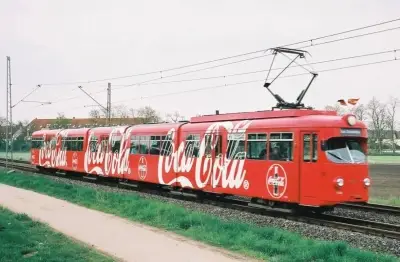Earlier this summer, Barclays announced it would not be continuing its £25m sponsorship of London’s cycle hire scheme, delivering only half of the £50m it promised in 2010. On paper, it was an attractive proposition for the bank. As the inaugural sponsors, Barclays would have their corporate branding on the 8,000 cycles located across the city and with roll-off-the-tongue alliteration, the scheme would surely forever be known as ‘Barclays Bikes’. Except, of course, that wasn’t the case. Thanks to London’s colourful Mayor, the cycle hire scheme was dubbed ‘Boris Bikes’ from the off, rendering Barclays’ naming rights deal redundant before it had barely begun. Now, Transport for London (TfL) are on the hunt for a new sponsor to shell out £5.5m a year for the scheme’s sponsorship.
Despite TfL’s vast estate spanning underground stations, buses, tube trains, DLR, bus stations and Oyster cards, to name a few, TfL only brings in £233m worth of non-fare revenue from commercial initiatives such as advertising and sponsorship, of which the Barclays deal accounts for more than 10%. Compare that to Dubai’s metro system which draws £300m worth of commercial revenue alone and you could argue TfL has some catching up to do.
Last year, GLA Conservatives released a report proposing that offering sponsorship and naming rights of tube stations and lines would allow the Mayor to freeze fares for at least 12 months. Central to this argument was the idea that TfL is sitting on an untapped fortune and failing to reap the lucrative benefits. The report concluded that given the vast footfalls at London transport hubs, hundreds of millions, if not billions, of pounds could be raised to subsidise fares and improve London’s transport infrastructure.
Of course, proposals with such visible implications cannot be considered without weighing up the political risks – of which there are plenty. For starters, Londoners may not take kindly to an historic service such as the London Underground ‘selling out’ to corporates. There was unease in some quarters when airline, Emirates made its way on to the Tube map following their sponsorship of the cable-car between Greenwich and Docklands. Yet, according to a poll commissioned by Conservative Assembly Member Gareth Bacon, 41% of Londoners agree that TfL should expand their use of sponsorship to freeze or cut fares.
So what’s holding Boris and TfL back? One of the key blockers is the cost associated with implementing the sponsorship deals such as changing posters, signs, maps and timetables. It is estimated that in total it would cost around £2m to change the name of a zone 1 station and an additional cost of £2m to change it back at the end of the sponsorship period.
 Additionally, following the trouble associated with the Barclays Bikes deal and potential political backlash of “selling off the family jewels”, it’s little wonder that TfL is reluctant to further commercialise the network. It looks like we won’t be riding the Coca-Cola Line to Virgin Euston any time soon.
Additionally, following the trouble associated with the Barclays Bikes deal and potential political backlash of “selling off the family jewels”, it’s little wonder that TfL is reluctant to further commercialise the network. It looks like we won’t be riding the Coca-Cola Line to Virgin Euston any time soon.
Leon Emirali is an Account Manager at PLMR and has worked on various London transport campaigns. In the most the recent London elections, Leon stood as a Conservative Party candidate in the Borough of Sutton.





